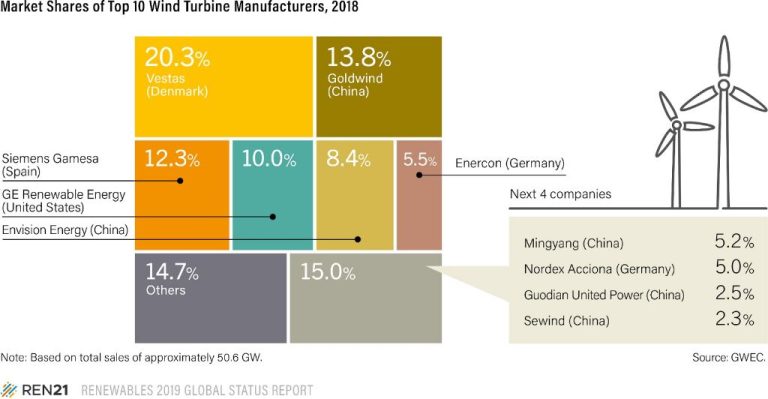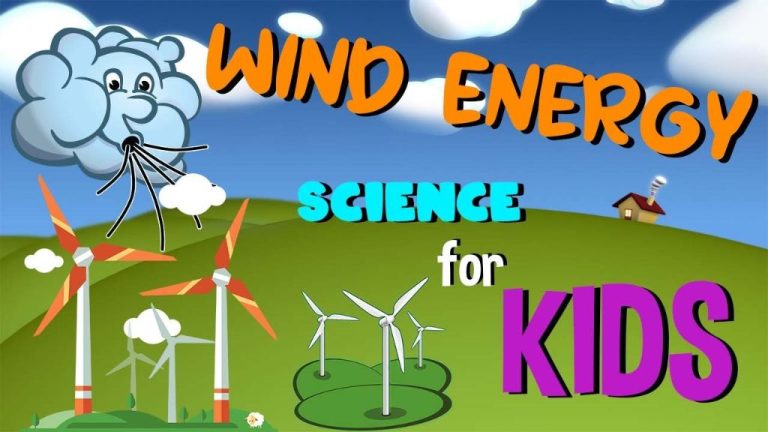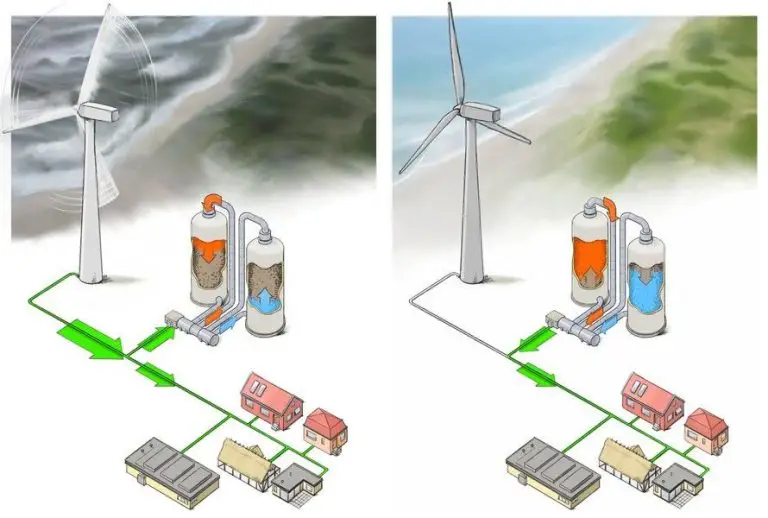What Is The Apex Clean Energy Lawsuit?
Apex Clean Energy is a renewable energy company based in Charlottesville, Virginia that develops, constructs, and operates utility-scale wind and solar power facilities across North America (https://www.apexcleanenergy.com/company/). Founded in 2009, Apex has quickly become an industry leader with a diverse portfolio of over 30 wind, solar, and energy storage projects across the U.S. and Canada (https://www.bloomberg.com/profile/company/8286961Z:US). The company’s mission is to accelerate the shift to clean energy by developing, financing, building, and operating renewable power facilities while working closely with local communities.
The Proposed Wind Farm
The Rocky Forge Wind project is a planned wind farm located in Botetourt County, Virginia near the border with Rockbridge County. The wind farm is being developed by Apex Clean Energy, based in Charlottesville, Virginia (https://www.rockyforgewind.com/about_rockyforge). According to project details, Rocky Forge Wind proposes building a maximum of 22 wind turbines on North Mountain, capable of generating up to 75 megawatts of electricity (https://hub.arcgis.com/pages/b9e5499e298c40a3a565ec34b1f12bc2).
Local Opposition
When Apex Clean Energy first proposed the Rocky Forge wind farm in Botetourt County in 2014, some local residents strongly opposed the project. Concerns were raised about how the turbines would impact views, noise levels, and property values in the area.
The Blue Ridge Environmental Defense League (BREDL) was one of the main groups against the wind farm, citing concerns about noise pollution and negative health impacts from turbines so close to homes. They argued the turbines should not be built within 2 miles of any residence due to noise levels that could disturb sleep and cause stress (source). Some local homeowners near the proposed site also spoke out, worried that proximity to the turbines would lower their property values.
Opponents maintained that the scenic views of the nearby Blue Ridge Mountains would be ruined by the presence of 26 wind turbines, each nearly 600 feet tall. Botetourt County residents cherish the natural beauty and rural character of the area, and did not want to see large industrial structures dotting the landscape. There were concerns about the flashing red aviation warning lights at night impeding dark sky views.
While not everyone locally was opposed, there was an organized effort against the wind farm based on how it could forever change the look and feel of the community. Concerns over noise, views, and property values fueled much of the early opposition and pushback.
The Lawsuit
In October 2020, a lawsuit was filed against the Rocky Forge wind farm in the Botetourt County Circuit Court by a group called Protect Our Children’s Heritage. The plaintiffs were nine Botetourt County residents who lived within a few miles of the proposed wind farm site.
The lawsuit claimed that the Botetourt County Board of Supervisors erred in approving a special use permit for the wind farm in 2018. It alleged that the Board failed to consider the impact on the viewshed and did not adequately address concerns about noise. The plaintiffs felt the wind turbines, which could be up to 600 feet tall, would negatively impact their scenic mountain views and rural quality of life (Virginia Business).
The lawsuit asked the court to repeal the special use permit granted to Apex Clean Energy for the Rocky Forge wind farm. It claimed the permit approval process was flawed and did not properly protect the interests of local residents who lived near the proposed wind farm site.
Apex’s Response
Apex defended itself against the lawsuit by arguing that the project would bring economic benefits to the area. In a statement responding to the lawsuit, Apex said “The project will deliver hundreds of construction jobs to the region and provide tens of millions of dollars in tax revenue and landowner payments – all while helping the state meet its clean energy goals.”
Apex also argued that the project went through an extensive review and permitting process over several years, receiving approval from various state and local agencies. The company said it had worked to address concerns raised by residents and modify the project to minimize disruptions.
Additionally, Apex contended that wind power is a safe and clean energy source that would not harm the environment or quality of life for residents. The company pointed to studies showing little impact on property values from proximity to wind turbines.
Apex urged the court to reject the “frivolous lawsuit” which it claimed was based on misinformation about the project. The company expressed confidence the legal process would affirm the approvals secured for the wind farm.
The Outcome
The lawsuits opposing Apex’s Botetourt wind farm project were ultimately dismissed in January 2024, allowing the project to move forward. Judge Joel Branscom ruled that the Botetourt County Board of Supervisors acted properly in approving the wind farm. He dismissed lawsuits brought by opponents on the grounds that the board followed all proper procedures in reviewing and approving the project [1]. This cleared the way for Apex Clean Energy to proceed with building the wind farm.
Reactions
The lawsuit ruling sparked mixed reactions from both sides. Supporters of the wind farm hailed it as a victory, allowing the renewable energy project to move forward. Apex Clean Energy said they were pleased with the outcome and looked forward to beginning construction. Local landowners who had signed leases with Apex were also relieved the lawsuits were resolved in favor of the wind farm.
Opponents of the project expressed disappointment but vowed to continue fighting against it through other channels. The Botetourt County Board of Supervisors, who had approved zoning changes to allow the wind farm, said they respected the court’s decision. Some citizens groups pledged to raise awareness about what they saw as the negative impacts of industrial wind turbines in the area. Overall, the ruling settled some legal questions but did not resolve the ongoing debate over wind energy in the region.
Impact on the Project
Despite the opposition and lawsuit, Apex Clean Energy continued moving forward with the Rocky Forge Wind project. As of late 2022, the project was still in development and had not been cancelled or significantly delayed (Source: Rocky Forge Wind).
According to the Rocky Forge Wind website, the project is currently in the construction phase, with plans to install up to 22 wind turbines in Botetourt County, Virginia. Once completed in 2023, the wind farm is expected to generate enough electricity to power around 20,000 homes. This represents a major renewable energy project for the state of Virginia (Rocky Forge Wind – About).
So while the lawsuit presented an obstacle, Apex Clean Energy has continued moving the Rocky Forge Wind project forward. The current status indicates construction is underway, with operations slated to begin in 2023.
Precedent Set
This lawsuit did not set any major legal precedent regarding wind projects, as the judge’s decision focused narrowly on whether the petitioners challenging the project had legal standing rather than ruling on the merits of the case itself. Judge James Branscom dismissed the lawsuit brought by local residents against Apex Clean Energy’s Rocky Forge Wind project, finding that the petitioners lived too far from the proposed turbines to suffer any harm and therefore lacked standing to sue (https://roanoke.com/news/local/do-opponents-of-botetourt-county-wind-farm-live-too-far-away-to-sue/article_fae2380e-9bf2-11ec-b9ed-ab39646aecf2.html). While a setback for opponents of this particular project, the ruling did not establish any precedent that would impact other wind farm lawsuits in the state or region.
The case was dismissed on standing grounds before getting to the merits of the opposition arguments against the project. So while the lawsuit itself did not shape legal precedent, it highlighted the importance of proximity and demonstrating potential harm in order to have standing to challenge wind projects in court going forward.
Conclusion
In summary, the legal battle over the proposed Timbermill Wind project in Ohio has highlighted the tensions around wind farm developments. Local residents brought a lawsuit alleging the project would be a nuisance and diminish their property values. The wind developer Apex Clean Energy denied these claims and vowed to continue pursuing the project. While the court ultimately ruled in favor of Apex, allowing the project to move forward, opponents have said they will keep fighting against it. This case sets a notable precedent in Ohio for how future wind farm lawsuits may play out as the renewable energy industry continues expanding.
The key takeaways are:
- Apex Clean Energy aims to build the large Timbermill Wind project in Ohio despite local opposition.
- Nearby residents sued to try blocking the project over concerns it would hurt their community.
- The court dismissed the lawsuit in favor of Apex, but project opponents plan to appeal.
- This legal battle has highlighted tensions around wind projects and may influence future cases.





